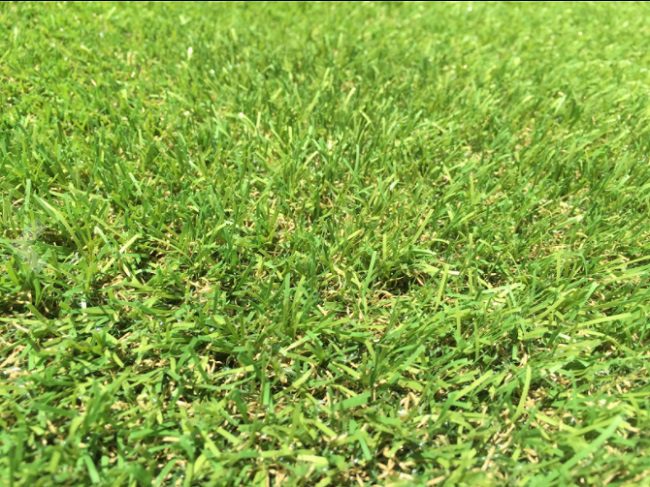As springtime rolls around, many of us look forward to spending more time outdoors, enjoying the pleasant weather and the beauty of nature. However, for those who suffer from allergies, this time of year can be a double-edged sword. The vibrant blooms and lush greenery can trigger allergic reactions, making outdoor activities a challenge. Fortunately, there’s a solution to this problem: switching to artificial grass. In this blog, we’ll explore how artificial grass can help you avoid allergies and enjoy your outdoor space to the fullest.
The Allergy Conundrum
Allergies can be a real downer, especially for outdoor enthusiasts. The most common outdoor allergens are pollen, mold spores, and grass. Grass pollen, in particular, is notorious for causing hay fever and other allergic reactions in susceptible individuals. If you find yourself constantly sneezing, sniffling, or suffering from itchy, watery eyes during the spring and summer months, grass pollen might be the culprit.
The benefits of outdoor activities are numerous, from improved mental health to increased physical fitness. Therefore, it’s essential to find ways to enjoy the great outdoors without constantly battling allergies. Artificial grass offers a practical solution for allergy sufferers, helping them create a beautiful, low-maintenance outdoor space that’s allergy-friendly.
How Artificial Grass Can Help
Say Goodbye to Grass Pollen
Artificial grass is made from synthetic materials like polyethylene or polypropylene, which don’t produce pollen. This is a game-changer for allergy sufferers. When you switch to artificial grass, you eliminate one of the most common outdoor allergens from your surroundings, which can significantly reduce your allergy symptoms. This means you can spend more time outside without worrying about sneezing and itching.
No More Mowing and Trimming
One of the major advantages of artificial grass is that it requires very little maintenance. Unlike natural grass, you won’t need to mow, trim, or fertilize it. These maintenance tasks can stir up pollen and other allergens, aggravating your allergies. With artificial grass, you can enjoy a beautiful lawn without any of the upkeep that triggers your symptoms.
Reduced Mold and Mildew
Natural grass can be a breeding ground for mold and mildew, especially in damp or shaded areas of your yard. Mold spores are another common outdoor allergen that can wreak havoc on your health. Artificial grass doesn’t provide the same conducive environment for mold and mildew growth. Therefore, by switching to artificial grass, you’ll reduce your exposure to these allergens.
Low Irritation, High Comfort
Artificial grass is soft, lush, and comfortable to walk or play on. It doesn’t produce itchy grass blades or cause rashes, which are common complaints for individuals with sensitive skin or grass allergies. This means you can sit, lay, or roll around on your artificial lawn without the fear of skin irritation.
Fewer Pests
Natural grass can attract a variety of insects and pests, including bees, ants, and mosquitoes. For those with insect allergies, these critters can be more than just a nuisance; they can pose a significant health risk. Artificial grass doesn’t provide the same food source or habitat for insects, making your outdoor space a safer and more allergy-friendly environment.
Creating an Allergy-Friendly Outdoor Oasis
Switching to artificial grass is just one piece of the puzzle when it comes to creating an allergy-friendly outdoor oasis. Here are some additional tips to help you maximize your allergy relief:
- Choose Allergy-Friendly Plants: If you want to add some greenery to your outdoor space, opt for low-pollen or allergy-friendly plants. Native plants, succulents, and flowering plants with low pollen production can beautify your surroundings without causing allergies.
- Invest in High-Quality Outdoor Furniture: High-quality outdoor furniture with allergen-resistant cushions and covers can help minimize your exposure to outdoor allergens.
- Keep Your Outdoor Space Clean: Regularly clean your outdoor space to remove dust, pollen, and other allergens. This includes sweeping the artificial grass, wiping down surfaces, and washing outdoor cushions and pillows.
- Install an Allergy-Friendly Air Purifier: If your allergies are still bothering you, consider investing in an allergy-friendly air purifier designed for outdoor use. These purifiers can help remove allergens from the air, providing you with clean and fresh outdoor air.
Conclusion
Enjoying the great outdoors shouldn’t come at the cost of your health and well-being. Artificial grass provides a fantastic solution for allergy sufferers, allowing them to create a beautiful and comfortable outdoor space without the constant battle against pollen, mold, and other allergens. By making the switch to artificial grass and implementing a few additional allergy-friendly measures, you can transform your outdoor area into an allergy-free oasis where you can relax, play, and breathe easy. Say goodbye to allergies and hello to a more enjoyable outdoor lifestyle with artificial grass.
According to the Asthma and Allergy Foundation of America, 8.2 percent of Americans suffer from “hay fever” or grass allergy. With many homeowners stuck having to maintain the very source of their allergies, artificial grass has become an increasingly popular alternative to traditional grass landscapes.
Symptoms and Causes of Grass Allergies
If you suffer from a grass pollen allergy, grass pollen allergy symptoms are all too familiar: runny or stuffy nose, itchiness, and sneezing are just a few, according to Healthline. Grass allergies are largely caused by the natural spread of grass pollen, which is often made worse by routine lawncare such as mowing and scaping.
Benefits of Artificial Grass for Allergy Sufferers
While over-the-counter allergy medications can relieve some allergy symptoms, they only provide temporary relief. By switching to synthetic grass, however, homeowners can enjoy a permanent solution to their allergies without having to sacrifice the natural beauty of their lawns.
Choosing the Right Artificial Grass
In recent years, artificial grass has evolved beyond the “fake grass” of decades past. Today’s synthetic grass almost perfectly replicates many of the most desirable grass varieties, offering allergy-free alternatives for almost every region and landscape.
Explore our wide range of options and get synthetic grass samples, or call 1-877-262-4145 if you would like to speak to one of our experts about your project.
Sources



